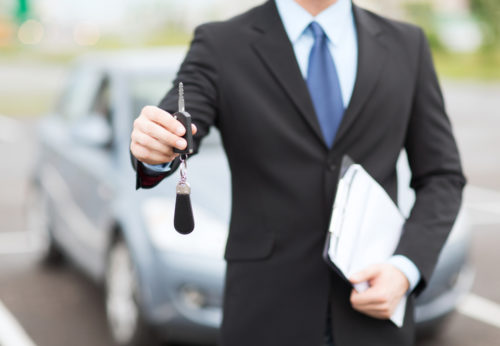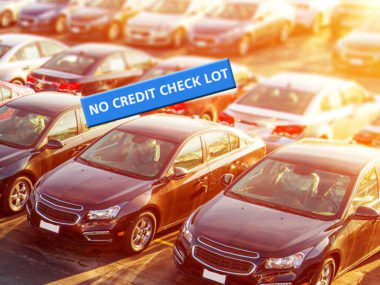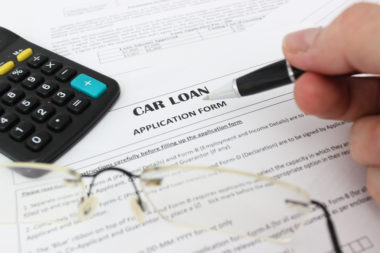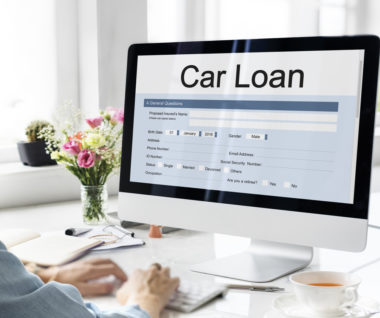When it’s time to get a new car, you generally have two options. You can get a car loan and buy one, or you can lease a car. Leasing a car allows you to pay less in monthly payments for a shorter period of time, as you will be returning the car at the end of the lease.
There are many reasons you may want to lease a car, but before you lease, you’ll need to know what exactly leasing a car means, the difference between leasing and buying, and when it’s smart for you to lease a car.
Table of Contents
What Is a Car Lease?
A car lease is similar to renting an apartment or house. The dealership will draft up a lease agreement, which will detail the terms and conditions of the lease. Once the lease is signed, instead of making monthly payments towards the full price of the car, the dealership will charge you the difference, or depreciation, between the car’s current worth and its expected worth when your lease ends.
This allows you to drive a more expensive car than you normally could, or fulfill shorter term transportation needs. It’s important to read your car lease carefully so that you know what your options are in the case of accidental damage or theft.
Leasing vs Buying
Price is arguably the biggest difference between leasing and buying a car. When you lease a car, you’re paying for the depreciation over time, and when you buy a car, you’re paying the full price of the vehicle. However, there are other differences to consider when you’re deciding whether to lease or buy a car.
Firstly, leased cars must be returned to the dealership when your lease term ends. You may have the option to buy out your lease, but this will have to be settled with the dealership in the original lease terms, or after the lease has ended.
Secondly, you cannot offer a leased car as an asset for other loans. Even if you’re still making monthly payments on a car you purchased and don’t own it outright yet, it is still considered an asset of yours because you are responsible for the full price of the vehicle. With a leased car, you are only responsible for the maintenance of the vehicle during the lease period.
Insurance is also handled differently between leasing and buying cars. You can often add a leased car onto your existing car insurance policy, but when leasing a car, you will also want to seriously look at gap insurance.
Should your car get damaged or stolen during your lease period, gap insurance will help you pay for the difference between the depreciation and the full value of the car. Some dealerships require you to have gap insurance before you can lease a vehicle.
When Should You Lease a Car?
Leasing a car is the perfect choice for some people, especially if their taste exceeds their budget or if they just don’t want to commit to the same car for a long time. Regardless, it is not without risks. It’s important to know when it’s smart to lease a car, so that you can be prepared for the risks. Here are some factors to consider:
- Your budget: Just because a lease is typically less expensive than buying a car doesn’t mean you should disregard or overstretch your budget. Before you sign a lease, just like before buying a car, you should calculate a monthly payment that you can afford, including insurance, gas, and other regular maintenance expenses.
- Your needs: You should consider why you need a car, and what purpose that car is going to serve in your everyday life before you lease. If you just need a way to get around or commute to work, then leasing is a great idea. If you’re looking for a backroads road-trip mobile, or a car you can haul materials in, leasing might not be the smartest idea.
- Your lifestyle: It’s important to know the demands of your lifestyle before you lease a car. If you travel away from home often or if other people will need to drive the car regularly, it may be smarter to buy, rather than lease. However, if you move cities regularly for work, or are the only person in need of a vehicle, then leasing may suit you perfectly.
There can be many benefits to leasing a car. However, the decision of whether to lease or buy your next car is ultimately up to your financial situation, the demands of your lifestyle, and your personal preferences.
How Does Leasing a Car Affect Your Credit?
To lease a car, you typically have to have better credit than if you were just buying the car outright. That’s because lenders are trusting you with an asset (the car) that they want to be able to sell later. You’re a safer bet if you have good credit, so it generally requires a credit score of 600 or more to qualify for a lease.
However, how it will affect your credit score afterward is a little more tricky. On one hand, leasing a car will require an inquiry on your credit report, and your FICO credit score will typically drop slightly if you have too many inquiries in a short period of time. Especially if you apply to lease several cars before deciding on one, this could hurt your credit temporarily.
Part of your credit score is based on what kind of debt you have, and diversifying your accounts will boost your score. So if you only have credit card debt, for example, leasing a car can definitely help your score. Additionally, fulfilling your monthly lease payments will display reliability, and your score will improve the same as if you consistently paid on any other loan.
Image Source: https://depositphotos.com/





